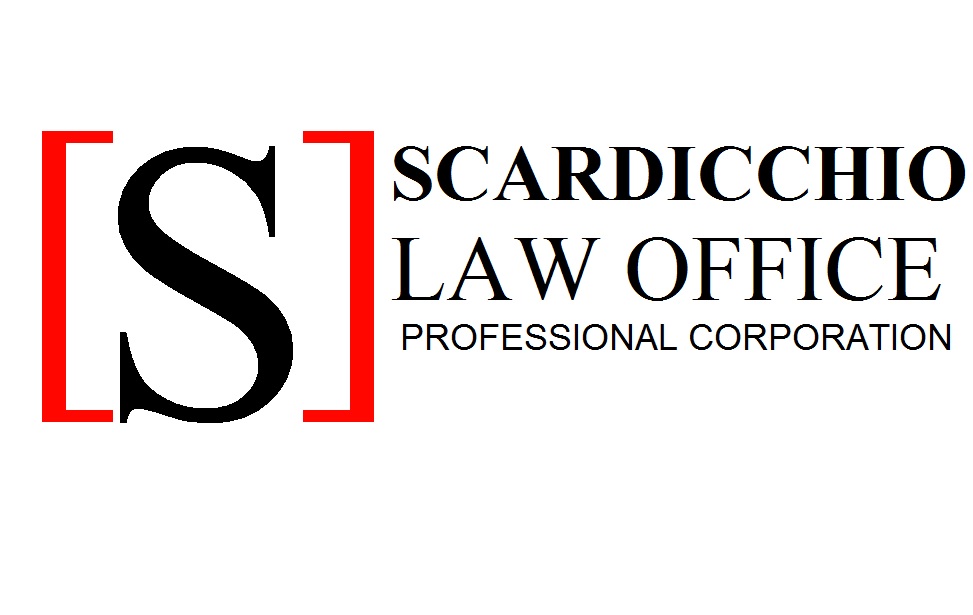Criminal Lawyers – Theft Over
Criminal Lawyers
Theft Over $5000 Charges
Criminal Lawyers defending Theft Over $5000 Charges
At Scardicchio Law Office Professional Corporation, our Criminal Lawyers defend Theft Over $5000 charges in: Mississauga, Brampton, Milton, Toronto, Newmarket, Vaughan, Orangeville, Oakville, Burlington, Bradford, Hamilton, Barrie, Oshawa, Niagara, St. Catherine’s, Kitchener-Waterloo-Guelph, and across Southwestern Ontario. Call us today for a free consultation.
What is Theft Over $5000 under the Criminal Code of Canada?
Theft Over $5000 is found under section 334, of the Criminal Code of Canada, which states that, Every one commits theft who fraudulently and without colour of right takes, or fraudulently and without colour of right converts to his use or to the use of another person, anything, whether animate or inanimate, with intent
(a) to deprive, temporarily or absolutely, the owner of it, or a person who has a special property or interest in it, of the thing or of his property or interest in it;
(b) to pledge it or deposit it as security;
(c) to part with it under a condition with respect to its return that the person who parts with it may be unable to perform; or
(d) to deal with it in such a manner that it cannot be restored in the condition in which it was at the time it was taken or converted.
Specifically, Theft Under $5000 if found under section 334(b) of the Criminal Code of Canada, which states that “Except where otherwise provided by law, every one who commits theft
(b) if the value of what is stolen is not more than $5,000, is guilty
Punishment for Theft Over $5000 Offence in Canada:
(i) of an indictable offence and is liable to imprisonment for a term not exceeding two years, or
(ii) of an offence punishable on summary conviction.
Section 322(2) states that, A person commits theft when, with intent to steal anything, he moves it or causes it to move or to be moved, or begins to cause it to become movable.
Common Forms of Theft Over $5000 Charges:
Some common forms of theft under $5000 charges include: Shoplifting if quantity exceeds $5000; Theft from an employer (also considered a breach of trust offence); Theft of parcels from homes’ doorsteps; Gasoline theft; Theft from locker rooms; Thefts from pharmacies; Thefts from department stores such as Walmart, The Bay, Shoppers’ Drug Mart; Theft from grocery stores such as Loblaws, Fortinos, Costco, and more.
Prooving a Theft Over Offence:
The Crown has to prove, among other things, the identity of the accused, the accused “takes, or concerts to his use or to the use of another person” anything; the accused person does the prohibited conduct with the intent to (i) deprive, temporarily or absolutely, the owner of it, or a person who has a special property or interest in it, of the thing or of his property or interest in it; (ii) to pledge it or deposit it as security; (iii) to part with it under a condition with respect to its return that the person who parts with it may be unable to perform; or (iv) to deal with it in such a manner that it cannot be restored in the condition in which it was at the time it was taken or converted. The Crown must further prove that the property was owned by someone (i.e. if there is a complainant, using their statement and any documents relevant to the ownership); the value of the property; continuity of the property; that the accused took the property or converted it; that the owner of the property did not give consent for the accused to take it; and that the prohibited conduct was done “fraudulently and without colour of right”.
What is Shoplifting?
Shoplifting falls under the same definition of theft under section 334; however, in addition to the general elements of proof for a theft offence, the Crown must prove that the accused did not pay for items or make any attempt to pay; that the accused person did not have the money to pay for the items; and whether the accused had the property in their possession at the time of the arrest. Theft in terms of shoplifting may be completed where an accused picks the items up with the intent to actually steal the item.
Can a Theft be “de minimus”?
Theft is taken seriously by the Courts, and there are some circumstances where an experienced Criminal Lawyer may argue that the theft constitutes a de minimus offence. This is usual if the charge is Theft Under $5000, and not theft Over $5000, however.
Defences to Theft Over Charge in Canada:
Some defences to a Theft Over $5000 charge may include that the accused paid for the property; the accused had an honest but mistaken belief that the property was theirs; the accused forgot they were in possession of it; or that the accused was given the property.
To find out more about defending a Theft Over $5000 charge, contact our Criminal Lawyers at Scardicchio Law Office Professional Corporation to discuss your unique circumstances.

Theft Over $5000 Sentencing
Theft Over $5000 are usually more serious and treated by the Crown as indictable offences.
Upon a finding of guilt on a Theft Over $5000 charge, if the Crown elected to prosecute by indictment, the maximum penalty is not more than 10-years incarceration.
Ranges of first time offences can include a fine, a discharge, a suspended sentence with probation, or short and sharp imprisonment where a prior criminal record exists.
It is important to hire a Criminal defence Lawyer for Theft Over $5000 charges because of the value of the theft, the Crown usually proceeds with harsher sentences. a sentence of a Fine, for example, is a permanent Criminal Record, and can impede travel, employment, etc. Our Criminal Lawyers have experience with Theft Over $5000 charges and will generally work towards a complete withdrawal of these offences. Different consequences may be at play for you depending on your immigration status as well. We work with you whether you are a Permanent Resident status or a non-citizen, such as a visitor visit or work visa or student visa.
Note that you may be eligible for a Record Suspension (Pardon) if you are convicted of a Theft Over $5000 offence.
What is “Employee Theft”?
What is the meaning of “employee theft” and how does it differ from theft charges generally?
An employee who gets charged with theft faces humiliation, loss of employment and potentially a permanent criminal record. This is a crime of “breach of trust” meaning that the person was in a position of trust and breached this trust. Offences involving theft of large amounts of money from an employer could result in incarceration.
In order to defend a Theft Under $5000 charge, you need to hire an experienced criminal lawyer who will review your disclosure and defend your case with the proper defences. Our Criminal Lawyers have the experience to defend your Theft Under $5000 charge. Call us today.
“Justice denied anywhere diminishes justice everywhere.”
– Martin Luther King Jr.

Criminal Lawyers defending Theft Over Charges
Mississauga
Brampton
Milton
Toronto
Newmarket
Orangeville
Hamilton
Barrie – Bradford
Criminal Lawyers. Personal Injury Lawyers. Civil Litigation
The Results You Deserve
Our team of dedicated Criminal Lawyers vigorously defend your Theft Over $5000 criminal charges and work to get you the results you deserve. Contact us today for a free telepone consultation to discuss your case.
Do I give a statement to the police if I am charged with Assault?
If you have been charged with Assault, the police will likely bring you to the police station and ask for a statement. In the interview room you will be audio and video recorded. Other than cooperating by providing your name and address, we advise our clients not to provide a police statement as it will be used in court and may be used against you as an inculpatory statement and you may incriminate yourself.
My first court date is coming up. What can I expect?
On your first court date, if you are not in custody and you are unrepresented, you can expect to stand before a Justice of the Peace and advise the court whether you intend to hire a lawyer or seek legal aid assistance with your case. Covid-19 has drastically changed the manner in which you may attend your first court date. First appearances may be held by video conference Zoom or other methods as outlined by your release documents.
You may or may not receive a disclosure package from the Crown on this date. You will also be required to set a return date in order to advise the court as to how you will be proceedings with your case. It is advisable to secure legal representation prior to your first court date. A lawyer will be able to secure your rights from the beginning. For example, there are important statements about your case that may need to be addressed before the court and reflected on the record, which only an experienced criminal lawyer can do to protect your rights from the start. Having a lawyer from the beginning of your case will give you the leading edge to ensure the best possible outcome.
My Undertaking prohibits me from leaving the Province of Ontario. Can I go on a vacation?
An undertaking includes the terms of your release for the duration of your pending charges. Commonly, the obligation to reside within the Province of Ontario must be followed. Our Criminal Lawyers routinely negotiate your terms of release with the Crown and have the terms varied to accomodate your individual needs.
I was convicted and I need a Pardon. What should I know?
A pardon, now called a “Record Suspension”, is an application to the Government of Canada to remove your criminal record, and create an ability to remove stigma and make a fresh start for travel, employment, and immigration. A person applying for a pardon must have completed their sentence, including Parole/Probation, and have paid any fines or financial penalties ordered. They must have served a required waiting period, which is now 5 years for Summary offences / 10 years for Indictable offences. The new legislation changed this wait period from the previous wait period of 3 years for Summary and 5 years Indictable. Individuals must also have demonstrated that they are law-abiding citizens. A Notice of changes to the Pardons program under Bill C-10, Amendments to the Criminal Records Act (CRA), came into effect on March 13th, 2012. Individuals convicted of sexual offences against minors (with certain exceptions) and those who have been convicted of more than 3 indictable offences, each with a sentence of 2 or more years, are now ineligible for a record suspension.
What are the Immigration Consequences if I am found guilty of a crime in Canada?
Depending on the type of offence, there are specific immigration consequences that an individual who is not a Canadian citizen needs to be aware of. For example, if you are a Permanent Resident, with a single ‘Summary’ (non-hybrid) offence and you receive a conviction in which your sentence is less than 6 months in jail, then you will still be admissible. The same is true for a Foreign National, a Protected Person (i.e. Convention Refugee), and Refugee Claimant. If you have two Summary (non-hybrid) offences that did not arise out of the same occurrence, and your conviction disposition is imprisonment for less than six months, then a Permanent Resident will still be admissible. However, a Foreign National will be inadmissible without appeal. Only a Convention Refugee, Protected Persons, or Claimant Refugee, will be admissible with appeal or refugee claim maintained. The issue arises where a Permanent Resident is convicted of a hybrid or indictable offence and a person receives a conviction with a disposition of imprisonment equal to or more than six months. Then, at Permanent Resident will be inadmissible without appeal. Our Criminal Lawyers understand the consequences of a criminal conviction on a persons status in Canada. We also have connections with well-known Immigration Lawyers who can advise you about the consequences. We always recommend speaking directly to an immigration lawyer for specific questions about your status in Canada. However, our criminal lawyers work very hard to ensure that your status will not be affected by specific outcomes of your charge. Contact our office today to discuss your criminal charge. Ask us about the Faster Removal of Foreign Criminals Act also.
Can I serve my jail term on the weekends?
Yes. If you have been sentence to serve time in jail, and the sentence imposed on you is 90-days or less, you may be able to convince the Judge that serving your jail term on weekends is beneficial to you. You may need to prove that you have a full-time job or a family to support and this may persuade the Judge to consider what is called an “Intermittent Sentence” for you.
What is "house arrest"?
“House Arrest” or a Conditional Sentence is an imprisonment sentence, except the offender serves his time outside jail and usually under strict conditions. There are restrictions on when a judge may impose this type of sentence. For example, the sentence of imprisonment must be less than 2 years; there is not a minimum sentence of jail-time for your offence; it is not a serious personal injury offence, terrorism offence, or a criminal organization offence; etc.
What is disclosure?
Disclosure is material information that the Crown Attorney must disclose to you, which it has in its possession or control and that is not clearly irrelevant. The right to disclosure is founded in the case R v Stinchcombe [1991] 3 SCR 326 at paragraphs 339 and 343. The Crown has an obligation to obtain from an investigative agency any relevant information that it is aware of and must “take reasonable step to inquire about … relevant information.” The Crown’s obligation is also that they must preserve all relevant evidence. This is a joint obligation on the Crown and police. Usually, on the first court date, you will receive a package of disclosure. It is important to hire criminal counsel prior to your first court appearance because there are specific rights that must be stated on the record if disclosure is missing or incomplete.
What is the right to remain silent?
The Right to Remain Silent is your Charter right and it is protected under section 7 and 11(c) of the Canadian Charter of Rights and Freedoms. You may not be compelled as a witness against yourself in a criminal proceeding, and only voluntary statements that are made to police are admissible into evidence. Police must inform an accused about their right to legal counsel. Any statements made to police prior to being informed of your right to legal counsel are to be considered involuntarily compelled and are inadmissible as evidence. After being informed of the right to counsel, an accused person may choose to voluntarily answer questions and those statements would be admissible. We always recommend that you speak to a criminal lawyer before you make any statements to the police. The best advice we can give to you if you have been charged and are in police custody being questioned is to not speak and ask for legal counsel or duty counsel.
How long will my criminal case take to complete?
The answer is, it depends. Your case may resolve quickly depending on many factors. It is important to disclose as much information as possible to your Criminal Lawyer in order for a proper time assessment to be made on your particular matter.
What is a no-contact Order?
A no-contact Order by the court means that you may no contact a person either directly or indirectly. Communication through Facebook or other internet platforms are also not allowed. Contact our Criminal Lawyers to ask about your no-contact Order and see how we can help you.
I am a Young Person and have been charged with a criminal offence. Do I need a Lawyer?
The Youth Criminal Justice Act contains many provisions that build on the use of extrajudicial measures for less serious offences. In order to ensure that your charge follows the appropriate route within the court system, you need a competent criminal lawyer to represent you. Only a lawyer who knows the youth court system very well will be able to ensure that you do not face harsh penalties as a result of your charge.
Can the complainant “take-back” the charges of assault against me?
No. In Canada, a complainant cannot simply take away the statement or complaint they made to the police. Once a charge of assault has been laid by police, your charges will be dealt with by the Crown Attorney and in court. An experienced Criminal Lawyer who defends Assault charges routinely will be able to properly evaluate your particular case and defend your assault charges in court.
What is Domestic Assault?
There is no separate charge for a Domestic Assault under the Criminal Code of Canada. Under the Code, Assault, including an assault of a domestic nature, is found under Section 266 of the Code. Domestic Assaults, however, are treated differently within the courts in Ontario. There are usually domestic violence Crown Attorney’s who form a domestic violence team at each court house. These Crown Attorney’s are well versed in domestic related cases and vigorously pursue these types of cases. Many people accused with domestic assault charges ask whether the charge can be “thrown out” if the complainant “takes back” or recants their initial complaint to the police. The simple answer is, no. There are some circumstances, however, that an experienced domestic assault defence lawyer will be able to defend your domestic assault charges where a complainant has recanted. It is important to hire a Criminal Lawyer immediately before your first court date so your lawyer can make the appropriate requests and submissions during your initial court appearances in order to protect your rights.
I have been charged with Domestic Assault. Will the charges be dropped?
If you have been charged with a domestic assault, it is important to contact a Lawyer immediately to discuss your case. Once the charges are laid by the Police, it is up to the Crown Attorney to proceed with your charges. It is seldom the case that a Crown Attorney will throw your case out unless there are extraordinary circumstances. A Domestic Violence Crown will fully prosecute your case and you will need a qualified Criminal Lawyer to ensure that your rights are fully protected throughout your proceedings.
Can my charges be withdrawn if I am charged with an Assault offence?
An experienced Criminal Lawyer will be able to properly defend your Assault charge with a view to obtaining a withdrawal. Our Criminal Lawyers will defend your assault charges and resolve your case to get you the appropriate results. Depending on the evidence, it is possible to obtain a withdrawal in an assault case.
How do I remove my Fingerprints from the police?
Our services include writing to the appropriate police agency and requesting that your fingerprints and photograph are removed from the police system. If your charge has been withdrawn or discharged, we offer this service in our retainer fee at no additional charges.
What is a Peace Bond?
A Peace Bond is a court order that requires you to keep the peace and be of good behaviour for a period of time. Essentially, during this time it is important to not be charged with another criminal offence. A Peace Bond is not a plea of guilt. It is essentially a withdrawal of your charges on your undertaking to enter into the order. Typically, a Peace Bond will last 12-months. Other orders may be recommended, such as to carry no weapons or to not have contact with a person or place.
What is a Surety?
If you have been asked to be a Surety for someone, it is important to know what this means. A Surety is a person who promises the court that they will supervise an accused person while they are out on bail. The Surety is usually responsible for ensuring that the accused attends all his or her court dates and adheres to the bail conditions of release. A Surety should be a Canadian citizen or permanent resident, be at least 18 years old and generally not have a criminal record. If you are the alleged victim of the present offence, then you cannot be the Surety.
What is a Probation Order?
A Probation Order is a court order on sentencing to do, or not do, certain things for a period of time. Reporting to a Probation Officer usually weekly or monthly is involved. A Probation Officer does have the power to charge you with a further offence if you break any probation orders or do not report to them.
I do not want to plead guilty. What are my next steps?
Our Criminal Lawyers will never recommend that you plead guilty to any offence unless you admit to the facts and choose to do so. If a resolution of your charge is not likely, then you may consider setting a trial date to fully defend your charges.
What is a Discharge?
If you decide to plead guilty, the Criminal Code of Canada provides that you may receive a discharge as a sentence for certain criminal charges. A court may grant a Conditional Discharge or an Absolute Discharge only for offences with no minimum penalty, and a maximum penalty of less than fourteen years. An Absolute Discharge and a Conditional Discharge means that although you are found guilty, no conviction is registered against you. However, a record of an Absolute Discharge or Conditional Discharge is kept by the Canadian Police Information Centre (CPIC) and by the police agency that laid the charge and is only removed (‘purged’) from your police record after 1 and 3 years, respectively.
What if I cannot afford a criminal lawyer?
If you cannot afford a criminal lawyer, our law firm makes specific arrangements with you so that you can make easy payments towards your block-fee bills on a monthly basis. We encourage you to discuss with our lawyers how this fee arrangement may benefit you.
I am not a Canadian citizen and I have been charged with a crime. What does this mean for Immigration?
A criminal conviction may affect your ability to become a Canadian citizen. No matter how long you have lived in Canada, if you are charged with a serious crime, you may face serious immigration consequences relating to your permanent residence status. The Faster Removal of Foreign Criminals Act received Royal Assent on June 19, 2013, which may affect your case. Our Criminal Lawyers have handled many criminal cases where individuals have been charged and face immigration consequences. We work through the criminal justice system to ensure that a criminal conviction will not meet the “serious” status which would ultimately affect your immigration status.
Law
Criminal Lawyers – Theft Over
The Law Firm You Can Trust
H0urs
Monday-Friday: 8am – 11pm
Saturday: 11am – 4pm
Sunday: 12am – 4pm

